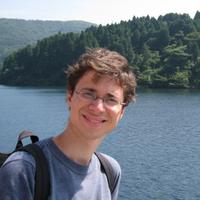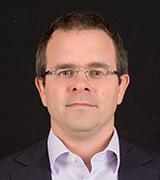Cooperative control for multi agent systems under time constraints
Michael Defoort – Université de Polytechnique Hauts de France (UPHF), France

Hybrid seminar at GERAD and Zoom.
Technological advancements in digital systems, computing, communication, and control engineering have risen the significance of networked control systems such as mobile robots, drones, and connected computers. These systems consist of interconnected subsystems known as agents or intelligent entities that must cooperate to achieve a common goal through local interactions. A group of cooperative agents can often tackle tasks that are challenging or even impossible for a single agent, enhance fault tolerance against potential agent failures, and provide greater flexibility for task execution. Over the past few decades, we have witnessed intensive research in the field of cooperative control of multi-agent systems due to its wide applications in various domains, such as coordination of multiple robots, formation of aerial vehicles, and distributed machine learning. With the development of distributed computing and large-scale networks during the past decade, consensus based distributed optimization has become a highly active subject in control engineering due to its application in resource allocation, smart grids, sensor networks, and machine learning. Additionally, in some applications of motion coordination, multiple physical agents should establish a specific formation around a location that is optimal for the whole team.
The first part of this talk will be dedicated to cooperative distributed navigation for wheeled mobile robots using the Vector Field Orientation approach under time and input constraints. The second part will consider the design of distributed optimization algorithms using a multi-agent system formalism while considering time as a hard constraint. In particular, the algorithms in this talk are developed under the scope of fixed-time convergence with an arbitrary upper bound of the settling time. Several simulations are performed to compare the proposed algorithms with existing schemes and evaluate their applicability to source estimation and collaborative learning.
Bio: Michael Defoort is a Full Professor at UPHF (Université Polytechnique Hauts-de-France) and member of the Automatic Department of LAMIH UMR CNRS 8201. From 2007 to 2008, he was a researcher at the Department of System Design Engineering at Keio University in Japan. He was the scientific coordinator of an international research project (PHC), an ANR SIOMRI project (2021-2023) focusing on the development of control systems for active products and cooperating autonomous entities for risk management in an industrial warehouse and a CNRS MITI project with Poitiers (COntrôle des Systèmes Multi-agents par Optimisation Distribuée et son application à l’allocation des ressources dans la 5G, 2025-2026). He has also participated in several national and international research programs. His research focuses on nonlinear control and its applications to multi-agent systems. He has supervised 16 doctoral theses. He has led a GDR MACS action on decentralized control of multi-agent systems under constraints since 2022. He serves as an associate editor for JFI, Nonlinear Dynamics, IEEE Trans. on Mech., and IEEE Trans. on Cybernetics. He has published more than 180 articles (including 95 journal articles) in his research field.

Location
André-Aisenstadt Building
Université de Montréal Campus
Montréal QC H3T 1J4
Canada